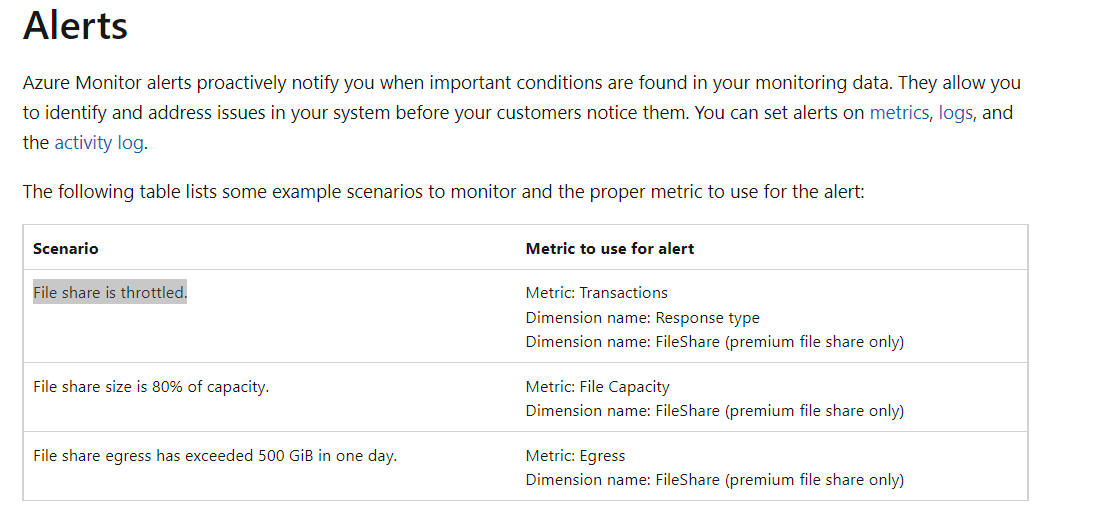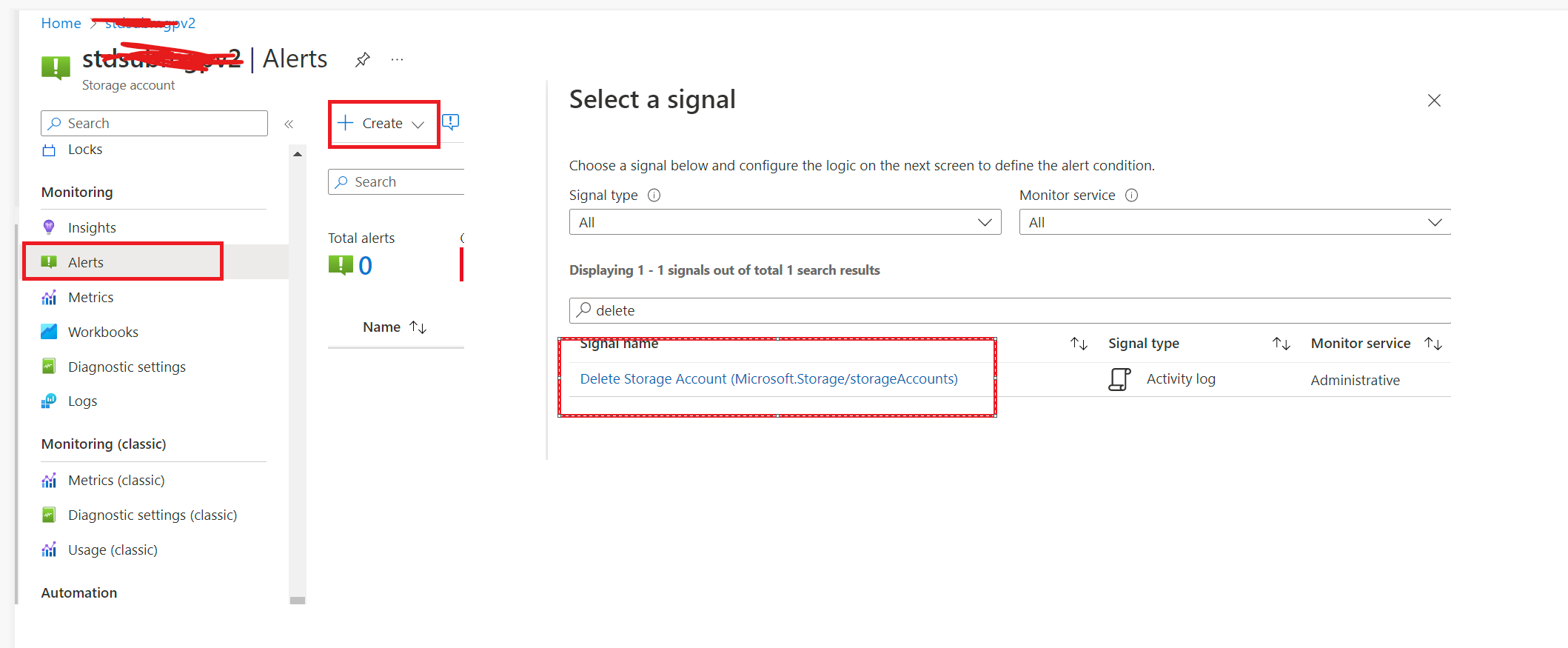Hello Support Boris Shabash,
Welcome to the Microsoft Q&A and thank you for posting your questions here.
Problem
I understand that you are having issues with file deletion tracking for Azure AI Search and Azure File Storage.
Solution
To answer your questions.
Is there documentation for which property of a file can change upon deletion
When it comes to tracking file deletions in Azure File Shares, there is not specific documentation on which property of a file changes upon deletion. But you can infer deletions through other properties and mechanisms such as:
- Last Modified Timestamp.
- File Metadata.
- Activity Log and Azure Monitor.
- Using soft delete for Azure AI Search
- In Azure Storage, add a custom metadata key-value pair to the file to indicate it’s flagged for deletion. You can create a property like
"IsDeleted"and set it totruewhen you want to delete the file.
https://stackoverflow.com/questions/57500954/automatically-delete-files-in-storage.
https://learn.microsoft.com/en-us/azure/architecture/ai-ml/architecture/search-blob-metadata.
some other way of achieving deletion tracking for a File Share
Managing deletion tracking for Azure File Share is essential, especially when dealing with a large number of files.
- You can find out who deleted a file share from your Azure storage account by checking the Activity log in the Azure portal
- Azure Files indexer (preview) in Azure AI Search is one of the best.
- To set up alerts specifically for file deletions, you can create an alert rule using Azure Monitor.
- Create a time-triggered Azure Function app and use an Azure CLI script to periodically delete files that haven't been modified within a specified time frame using Schedule Function App.
https://learn.microsoft.com/en-us/azure/storage/files/storage-files-monitoring.
References
Use above links as the source to read more and for detail steps.
Accept Answer
I hope this is helpful! Do not hesitate to let me know if you have any other questions.
** Please don't forget to close up the thread here by upvoting and accept it as an answer if it is helpful ** so that others in the community facing similar issues can easily find the solution.
Best Regards,
Sina Salam

